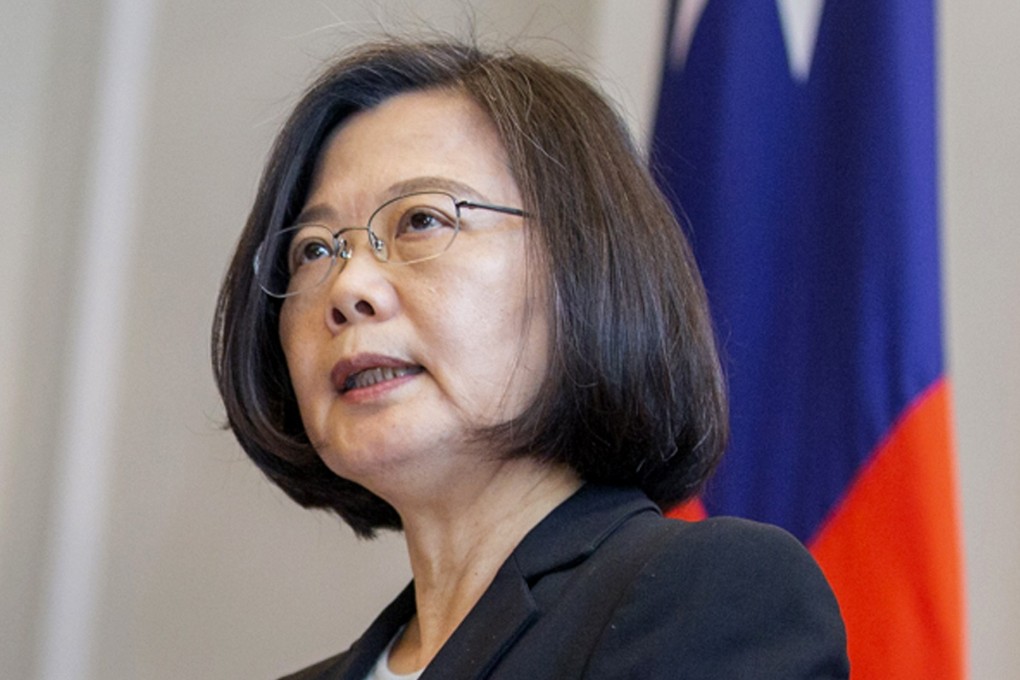Taiwan ‘at the front line of threats’ from Beijing, Tsai Ing-wen tells US think tanks
- President says in video link that the United States ‘has played a crucial role’ to help the self-ruled island reject coercion from mainland China
- Event was held ahead of 40th anniversary of Taiwan Relations Act

Taiwanese President Tsai Ing-wen on Tuesday vowed to strengthen defence, as she sought support from the US and other countries to counter what she called aggression from mainland China.
Speaking during a video conference with three US think tanks in Washington, Tsai said the self-ruled island had faced coercion from Beijing, and it had worsened since she became president in 2016.
“Because of the Taiwan Relations Act, the US has played a crucial role to help [Taiwan] reject coercion,” she said, referring to aggression – including military intimidation and diplomatic isolation – from Beijing since she took office and refused to accept the one-China principle.
Tsai was speaking ahead of the 40th anniversary of the act, which defines US ties with the island in the absence of formal relations.
“In terms of security, [the act] laid out a framework to not only ‘provide Taiwan with arms of a defensive character’ but also ‘to consider any effort to determine the future of Taiwan by other than peaceful means, including by boycotts or embargoes, a threat to the peace and security of the Western Pacific area and of grave concern to the United States’,” she said.
“Cooperation between our two countries has continued to fulfil the spirit of these articles. Already, a steady drumbeat of arms sales have been announced by the current US administration, and we have more in the pipeline.”